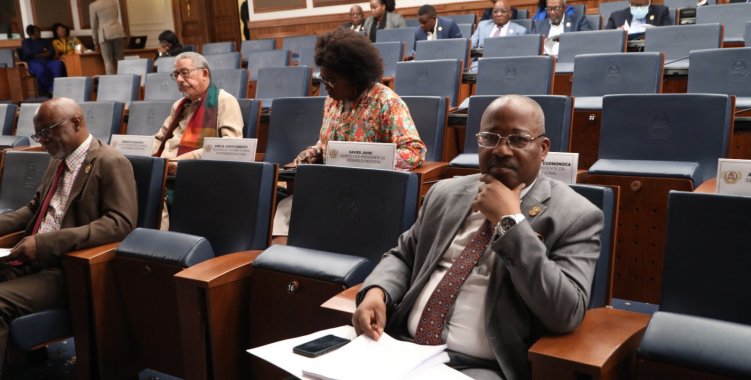At the session, the parliamentarians recognized the "pertinence" of implementing the Government's proposal which provides for the reduction of VAT on food goods from 14 to seven percent, a measure recently announced with a view to "return purchasing power to Angolan families".
"In a democratic exercise to improve the said diploma, the deputies recognize the pertinence of its implementation taking into account the current context of the country, in the economic and social aspects, as well as the economic and financial challenges faced by the population and companies", says a statement. of Parliament, to which VerAngola had access.
On the occasion, the second vice-president of the UNITA parliamentary group, Navita Ngolo, took the opportunity to draw attention to "the need to strengthen inspection mechanisms, warning of the importance of instilling tax education in citizens and operators".
Thus, the deputy suggested that, in the total of the 54 goods of wide consumption chosen by the Government, at least 28 of the most consumed ones should be exempt from VAT, aiming at alleviating the current socio-economic situation of the citizens.
"With the exception of the province of Cabinda, which will now have a single VAT incidence rate, in the order of one percent, taking into account the Special Regime in force in that region, the package of measures will cover the whole country and intends to create stimuli that aim to boost economic growth and tax simplification", adds the note.
Thus, the deputies propose "a greater reduction in the rate of essential products in the basic basket, presenting as an alternative the applicability of the same in items considered 'luxury' or secondary".
On the occasion, deputy Paulo de Carvalho said that it was necessary to establish a lower rate of seven percent of the tax on essential food products - considering that there are many families impoverished, worsened by the high unemployment rate in Angola -, whose action could be escorted with the increase in the tax on goods with less demand and consumption, thus offsetting the reduction in essential products, writes Angop.
The same view was shared by parliamentarian Maria Pires dos Santos, who wants this change in the law to help ease families' wallets, ensuring that food reaches citizens at an affordable price. "Products with no added value from a nutritional point of view can be separated from nutritional goods, to guarantee food security for citizens," she said, quoted by Angop.
Among the various deputies who made suggestions during the discussion, is Milonga Bernardo, who classified the modification of the VAT law as challenging from the social, economic and financial point of view, which requires balanced and sensible resolutions on the part of the executive and legislative branches. Thus, he advocated the fact that it was necessary to discover metrics that would reconcile and comfort the "triple dimension of protection", materialized in the restoration or improvement of citizens' purchasing power, sustainability of public finances and safeguarding of national production, having thus proposed the reduction of VAT to 3.5 percent on goods of vast consumption, in the event that there is a possibility of safeguarding the interests of these three elements, writes Angop.
In response to the various suggestions put forward by various deputies, the Secretary of State for the Treasury, Ottoniel dos Santos, explained, among other aspects, that this proposal is fundamentally aimed at easing the incidence of the tax burden on the activities of families and companies.
According to Angop, discussions around this matter continue this Wednesday.







